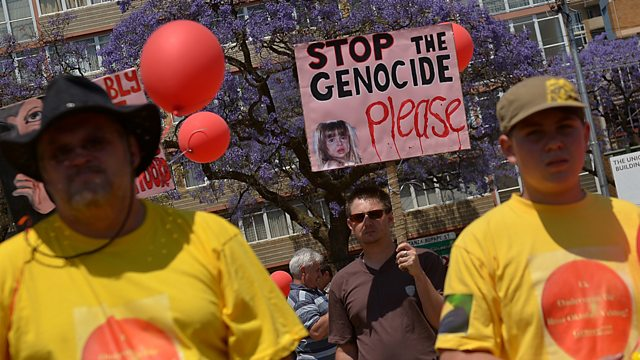The claims surrounding the alleged genocide of white South Africans, particularly aimed at the Afrikaner community, have been highly controversial and widely disputed. President Donald Trump’s assertions, made during his interactions with South African President Cyril Ramaphosa, have sparked significant discourse both in the United States and in South Africa. Critics, including South African political leaders and advocacy groups, have vehemently denounced these claims as unfounded. They argue that while violence against farmers exists, it is not racially motivated nor indicative of a coordinated genocide against white individuals. Figures from law enforcement suggest that the crime dynamics in rural areas are complex and do not support the narrative of a systematic killing focused on white agricultural workers. Importantly, the discussions around these claims seem to be more reflective of political posturing than of actual phenomena taking place on the ground.
The historical context of Afrikaners in South Africa further complicates current narratives. Descended primarily from 17th-century European settlers, the Afrikaner identity is deeply intertwined with the nation’s tumultuous history, particularly during the apartheid era when their government enforced racial segregation and privileged white citizens at the expense of the indigenous population. Although the end of apartheid in 1994 marked a significant change in governance, socioeconomic disparities persist, leading some Afrikaners to feel threatened by the political and social shifts. Despite the existence of vocal factions within South Africa that express concerns about perceived anti-white sentiments, the majority of political parties—including those representing Afrikaners—reject the idea that a genocide against white South Africans is taking place. Instead, their focus appears to be on navigating the complexities of post-apartheid South Africa and seeking equitable representation in a transformed society.
Additionally, the dialogue surrounding migration among Afrikaners to the United States is symptomatic of both desperation and a quest for security amidst evolving social dynamics. While recent asylum applications have surged, largely sparked by Trump’s framing of their plight, actual intentions among the Afrikaner population appear varied and less unified than portrayed. Responses from community leaders emphasize a dedication to their homeland and challenge the notion that a mass exodus is warranted or desired. Recent surveys suggest only a fraction of Afrikaners envision leaving South Africa, as many hold a commitment to confronting the challenges domestically rather than seeking refuge elsewhere. This tension reveals a broader struggle within South Africa regarding identity, race, and the legacy of apartheid, further complicating the simplistic narratives often employed in political discourse both locally and internationally.
Summary
On June 2, 2025, President Donald Trump accused South African leader Cyril Ramaphosa of overseeing a genocide against white farmers, claims that have been widely refuted by South African political figures and organizations. The US has drawn controversy by granting asylum to nearly 60 Afrikaners, following Trump’s statements which assert that white farmers are being persecuted and killed. However, empirical evidence from various sources, including South Africa’s government, indicates that such claims of genocide are exaggerated; the statistics show that recent killings on farms disproportionately affect black individuals. As discussions continued, Ramaphosa countered Trump’s assertions, stating they are false and reflective of a resistance among some white people to the transformative changes in post-apartheid South Africa. Meanwhile, internal dynamics, such as ongoing economic disparities and the backlash against affirmative action laws, complicate the narrative of racial justice and equality in the country.



More Stories
Heartbreak in Limpopo: Scholar Transport Tragedy Claims Life of Seven-Year-Old
Limpopo fomer Radio Presenter Lerato Queen Selotole Killed in Alleged Gender-Based Violence Incident
Six Suspects in R250 Million Rhino Horn Trafficking Syndicate Granted Bail